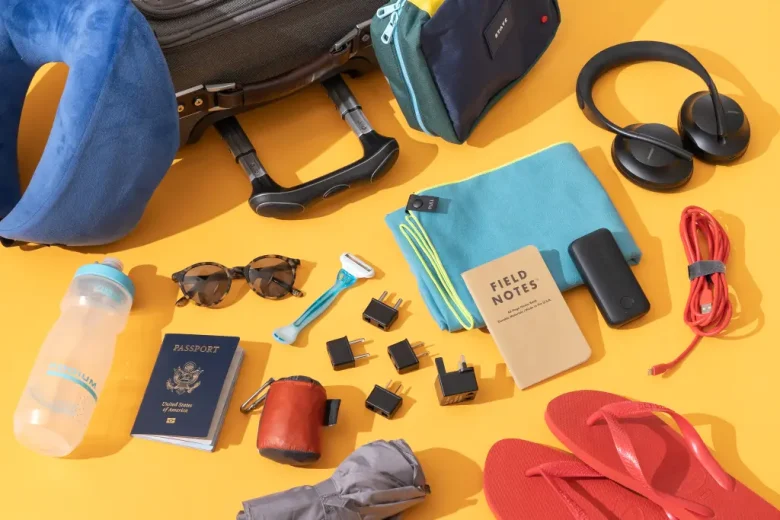Backpacking is one of the most exhilarating ways to explore the world. It offers freedom, adventure, and the opportunity to immerse yourself in new cultures, all while sticking to a budget. For beginners, however, the idea of planning and embarking on a backpacking trip can seem daunting. With the right preparation and mindset, you can make your journey both memorable and manageable. Here’s a beginner’s guide to help you get started.
1. Choose Your Destination Wisely
Your choice of destination can make or break your first backpacking experience. Opt for a region that matches your interests, budget, and comfort level.
- Popular Backpacking Regions: Southeast Asia, Europe, South America, and Australia are well-known for their backpacker-friendly infrastructure.
- Budget Considerations: Some countries, like Thailand, Vietnam, and Mexico, offer incredible experiences at a fraction of the cost of destinations like Switzerland or Japan.
- Safety and Accessibility: For beginners, it’s best to choose destinations with reliable transportation, good internet connectivity, and a reputation for being safe for travelers.
Pro Tip: Research visa requirements, currency exchange rates, and local customs to prepare for your destination.
2. Pack Smart and Light
One of the golden rules of backpacking is to pack light. Carrying only the essentials will make your journey easier and more enjoyable.
- The Right Backpack: Invest in a durable, lightweight backpack with a capacity of 40-60 liters. Look for features like padded straps, a hip belt, and multiple compartments.
- Clothing: Pack versatile, weather-appropriate clothing that can be layered. Stick to quick-drying fabrics and bring comfortable footwear.
- Essentials: Include a reusable water bottle, a compact first-aid kit, travel-sized toiletries, a power bank, and copies of important documents like your passport.
- Tech Gear: A smartphone, universal adapter, and lightweight tablet or e-reader can enhance your experience without adding much weight.
Pro Tip: Roll your clothes to save space and use packing cubes to keep your items organized.
3. Plan Your Budget
Backpacking is often associated with budget travel, but planning your finances is still essential to avoid overspending.
- Daily Budget: Research the average daily costs for accommodations, food, and transportation at your destination. Aim for a budget that includes a buffer for unexpected expenses.
- Save on Accommodation: Hostels, guesthouses, and budget hotels are affordable options. Couchsurfing and camping can further cut costs.
- Affordable Meals: Street food and local eateries offer delicious, authentic meals without breaking the bank.
- Transportation Tips: Use public transportation, rent a bike, or explore on foot to save money and experience the local culture.
Pro Tip: Track your expenses with apps like Trail Wallet or Splitwise to stay within your budget.
4. Stay Flexible but Organized
While spontaneity is part of the backpacking charm, having a loose plan can help you make the most of your trip.
- Itinerary Basics: Create a rough itinerary that includes key destinations, must-see attractions, and travel times. Be flexible to accommodate unexpected opportunities.
- Book in Advance: Reserve accommodations and transportation for popular destinations, especially during peak seasons.
- Local Activities: Leave room in your schedule for local events, festivals, or recommendations from fellow travelers.
Pro Tip: Use apps like Google Maps, Rome2Rio, and Booking.com to simplify your planning process.
5. Prioritize Safety
Safety should always be a top priority when backpacking. Taking a few precautions can help you avoid potential risks and focus on enjoying your adventure.
- Travel Insurance: Purchase comprehensive travel insurance that covers medical emergencies, lost luggage, and trip cancellations.
- Stay Alert: Keep your belongings secure, especially in crowded areas. Use anti-theft backpacks or money belts to protect valuables.
- Emergency Contacts: Share your itinerary and contact information with a trusted friend or family member. Know the emergency numbers for your destination.
- Trust Your Instincts: If something feels off, trust your gut and prioritize your safety.
Pro Tip: Carry a small whistle or personal alarm for added security.
6. Connect with Other Travelers
One of the best parts of backpacking is meeting people from all over the world. Fellow travelers can offer tips, companionship, and even lifelong friendships.
- Stay in Hostels: Hostels are hubs for meeting like-minded backpackers. Many hostels organize group activities, tours, and social events.
- Join Travel Communities: Platforms like Meetup, Couchsurfing, and Facebook groups are great for finding travel buddies or local guides.
- Be Open: Engage with locals and other travelers, share your experiences, and embrace cultural exchanges.
Pro Tip: Learn a few basic phrases in the local language to connect with people more easily.
7. Embrace the Journey
Backpacking is as much about the journey as it is about the destination. Embrace the unexpected and be open to new experiences.
- Be Patient: Delays and mishaps are part of travel. Stay positive and adapt to changes.
- Travel Sustainably: Respect the environment and local communities by minimizing waste, supporting local businesses, and being mindful of cultural practices.
- Document Your Trip: Capture memories through photos, journaling, or blogging to look back on your adventures.
Pro Tip: Take breaks to reflect and appreciate the moments that make your journey special.




